Pinterest’s New Guide: Highlights the Power of Positivity, While Criticizing Engagement-Baiting Approaches
Everyone’s talking about Pinterest’s new guide as it focuses on the power of positivity in social media, particularly with respect to building your brand online.
Moreover, Pinterest has also taken a veiled shot at other social networks, which use engagement as a key consideration: “If social media has taught us one thing, it’s that unfiltered content drives negativity. Without intentional moderation, platforms built on connecting people have – in the end – only polarized them. Here’s the thing: Anger and divisiveness may encourage people to scroll (and troll!). But they don’t get people to buy. Negative environments make people less likely to remember, less likely to trust, and less likely to purchase from brands.”
Take that unnamed social media apps.
Pinterest’s New Guide in 2020:
However, Pinterest may have a valid point – yes, you can generate engagement besides interaction by being divisive, along with promoting debate and response. Anyhow, the question is does that help to shift your company’s bottom line?
Pinterest‘s New guide focuses on how brands can maximize consumer response by taking a positive approach.
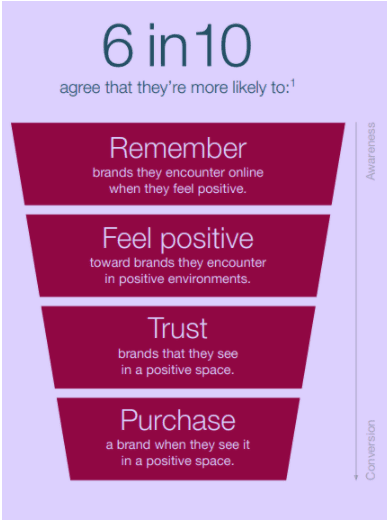
Which is highly important in 2020 – the main point Pinterest looks to highlight is that, right now, people look for positivity more than before:
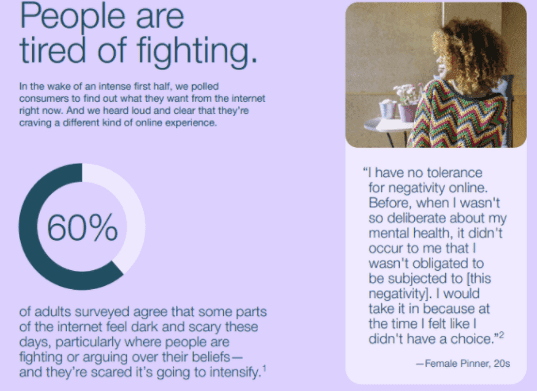
According to Pinterest’s data, searches related to positivity are pinning because people are looking for an escape from the negative news cycle.
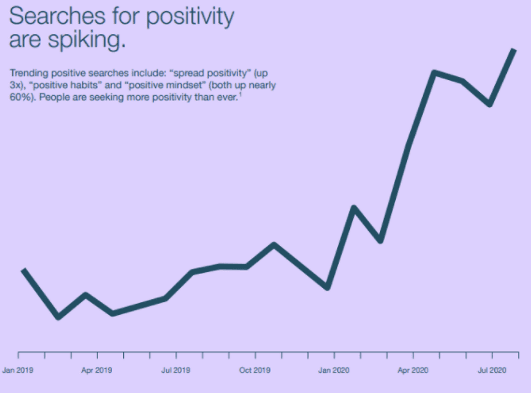
Moreover, that not only relates to the content you create but the platforms you’re using – which is where Pinterest is intended to highlight its approach:
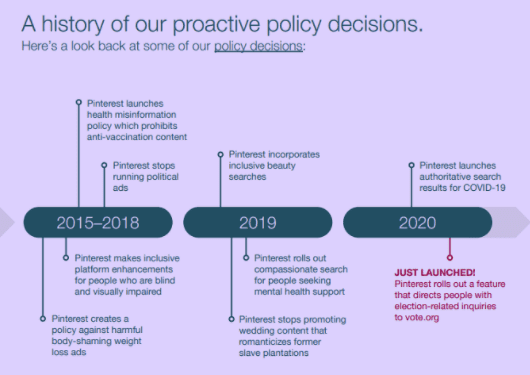
Additionally and aside from Pinterest’s new guide, Pinterest is working to improve its internal culture after two former employees spoke out about their poor treatment, and the treatment of people of color in particular, inside the organization.
However, comparatively, and from an external viewpoint, Pinterest says that it’s a more positive space for users to communicate, which includes its stance against political ads – which Pinterest says causes more problems than just allowing the spread of falsehoods.
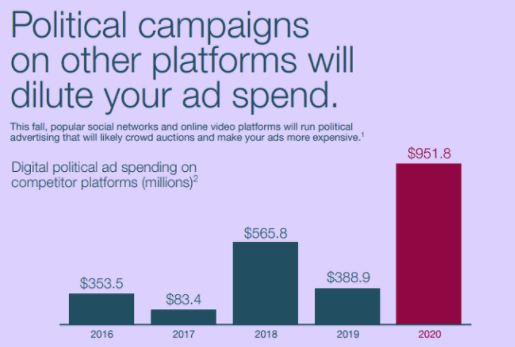
Moreover, Pinterest is relatively free of divisive political debates, which may facilitate a more positive experience.
Regardless of Pinterest’s new guide, it should be mentioned that Pinterest is far from perfect as there is another recent investigation which found out that Pinterest also hosts sexual images of young girls and anti-vax memes, despite its efforts to eliminate such. Like all social media platforms, Pinterest has content concerns, but its case here is that by not making divisive, engagement-baiting content a focus, it provides the better user experience, especially as it relates to brand building.
Finally, make sure to take a look at Pinterest’s new guide here.


